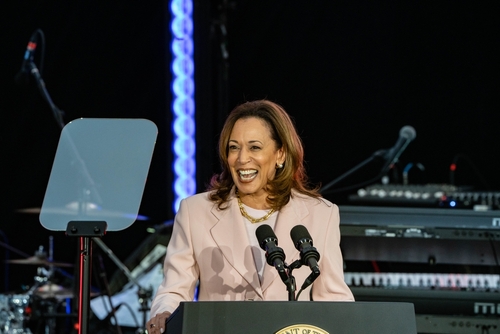
Vice President Kamala Harris’s campaign in Pennsylvania is facing increasing criticism from Democrats within the state, sparking concerns that her missteps could cost her the election in this crucial battleground. Democratic leaders, strategists, and activists have voiced frustration with the lack of effective engagement, especially with minority voters, which could be pivotal for Harris to secure a victory over Donald Trump in 2024.
A key issue centers around Nikki Lu, the campaign’s Pennsylvania manager, who has been described as disconnected from the state's political dynamics, particularly in Philadelphia. Several local Democratic figures, including labor leaders and city council members, have highlighted that Lu's approach is failing to resonate with key demographics like Black and Latino voters. Ryan Boyer, a prominent labor leader in Philadelphia, criticized Lu for not understanding the unique political landscape of the city, stating that outreach efforts have been sluggish and inadequate.
IT’S OVER: Kamala derails into deranged yelling and shaking fit at Bret Baier for simply pressing her on her evidently disastrous record
Is this the temperament you want for a President with the nuclear button?
Disqualifying.
— CatholicVote (@CatholicVote) October 16, 2024
The Harris campaign’s inability to effectively mobilize influential surrogates in Philadelphia, like Mayor Cherelle Parker, has further aggravated the situation. Despite Parker's deep connections with working-class voters and the African-American community, her role in the campaign has been seen as underutilized. Parker, known for her tough-on-crime platform, could have been a significant asset in energizing voters, but many local Democrats feel her involvement has been limited.
Regional tensions have also complicated Harris’s campaign strategy. Much of the frustration has emerged from Philadelphia, where local Democrats feel disconnected from Lu, who hails from Pittsburgh. This divide has led to miscommunication and a lack of coordination, further fueling concerns about Harris’s chances in the state.
OMG 🚨 Kamala Harris has been caught bussing in THOUSANDS of “Supporters” to her NH rally
I CAN’T STOP LAUGHING, SHE IS SO FAKE
KEEP EXPOSING THIS PHONY pic.twitter.com/HUcWubWs08
— Marjorie Taylor Greene Press Release (Parody) (@MTGrepp) September 4, 2024
The campaign’s over-reliance on data-driven tactics, such as door-knocking, has also come under fire for missing the personal touch needed in culturally diverse communities. Former Philadelphia City Councilmember Maria Quiñones-Sánchez pointed out that Latino voters, in particular, respond to more vibrant and personal outreach, rather than purely technical strategies. The campaign's data-focused approach is seen as out of touch with the realities on the ground, where community engagement and building personal connections are crucial.
Despite these challenges, the Harris campaign has defended its strategy. National campaign manager Julie Chávez Rodríguez emphasized that the operation in Pennsylvania is the most sophisticated in the state’s history, boasting 50 offices and nearly 400 staffers. The campaign has also spent record amounts on targeted advertising aimed at Black and Latino voters. However, these reassurances have done little to quell the concerns of local leaders who fear that Harris's ground game is faltering.
Adding to the campaign’s woes is the mounting popularity of Donald Trump in Pennsylvania. Polls show a tight race between Harris and Trump, with some surveys indicating Trump is ahead in critical parts of the state, including the Northeast, where his populist message resonates strongly with white working-class voters. Trump's dominance among these voters, who historically supported Democrats, reflects the shifting political landscape in Pennsylvania, particularly in areas like Luzerne County, which has turned solidly red after decades of Democratic loyalty.
As Election Day nears, many Pennsylvania Democrats are urging the Harris campaign to recalibrate its strategy. The stakes are high, and any failure to engage minority voters or mend internal fractures could have significant consequences. With millions already spent on TV ads and outreach efforts, the margin for error is slim, and the pressure on Harris’s team is mounting.












